|
The PTRD 1941
Link to the PTRS
Length: 2020mm
Weight: 17.3Kg
Calibre 14.5mm
Muzzle velocity: 1000m/s
Armour penetration at 300m: 25mm
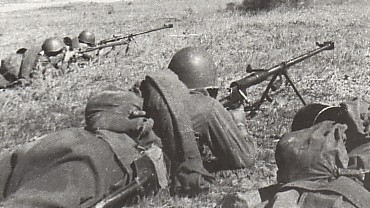
Russian PTRD rifle team waits for the German advance.
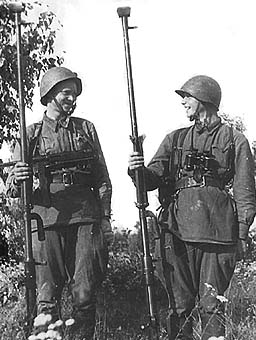
The Red Army was alone among the major combatants in that it never produced a
viable anti tank weapon for its infantry throughout the course of the war. The
PTRD 1941 was available in time for the German invasion, but unfortunately its
ammunition was not, so the Red Army found itself introducing the weapon during
1942; the same year the British and German armies were relegating their designs
to the scrapheap.
The Russian weapon saw widespread use against the ever heavier German tanks.
It was useless in a frontal assault, and the weapon was too cumbersome to
consider stalking for a rear engine shot. Instead, against tanks it was used to
target soft points such as visor screens or periscopes, blinding the crew.
While it may seem a desperate tactic an entire generation of 'super heavy'
sniper rifles currently exists to target vulnerable electronic equipment in an
identical fashion. It was also useful against buildings or bunkers. A semi
automatic model, the PTRS 1941 was also used, 3.5 kg heavier and 8 cm longer, it
was fed from a five round clip (pictured below). It proved mechanically inferior to the PTRD
and eventually production was switched to the manufacture of the PTRD.
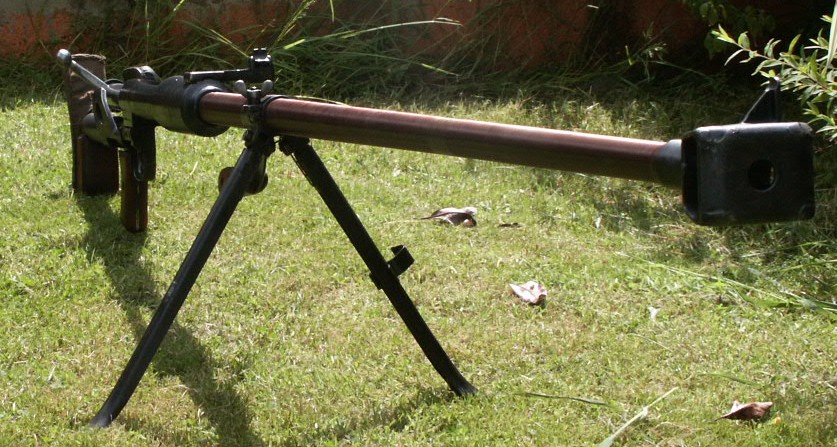
PTRD,
notice lacquered barrel. This fine example came from an Albanian armory that was
decommissioned.
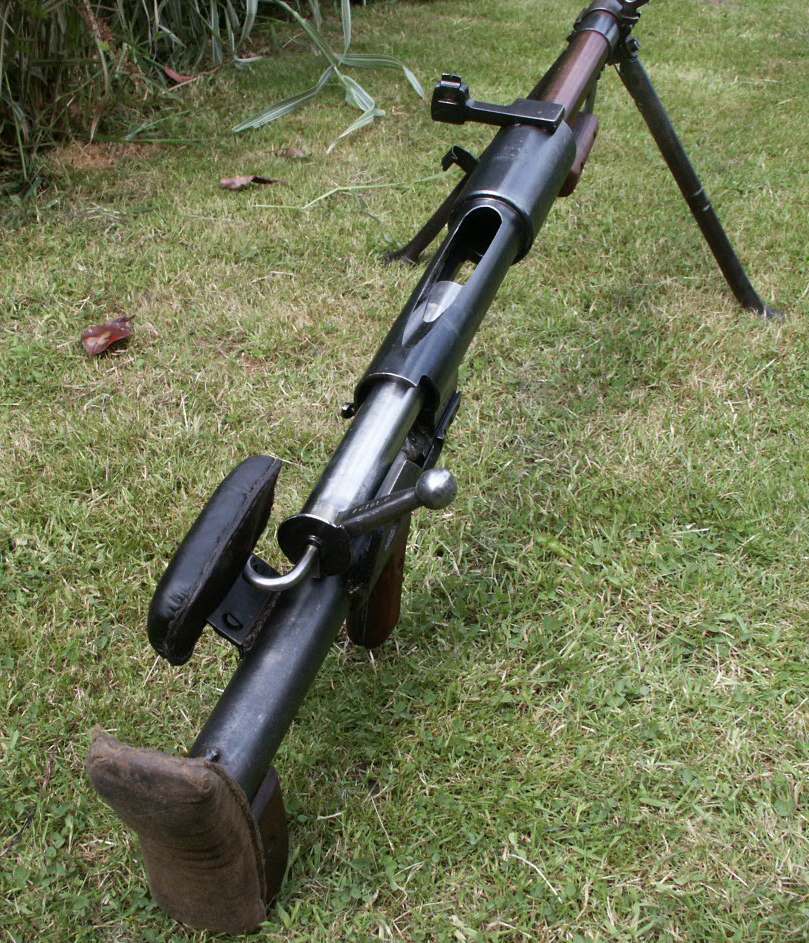 Rear
view of the bolt and padded stock.
Rear
view of the bolt and padded stock.
Close up of massive Muzzle Break and foresight
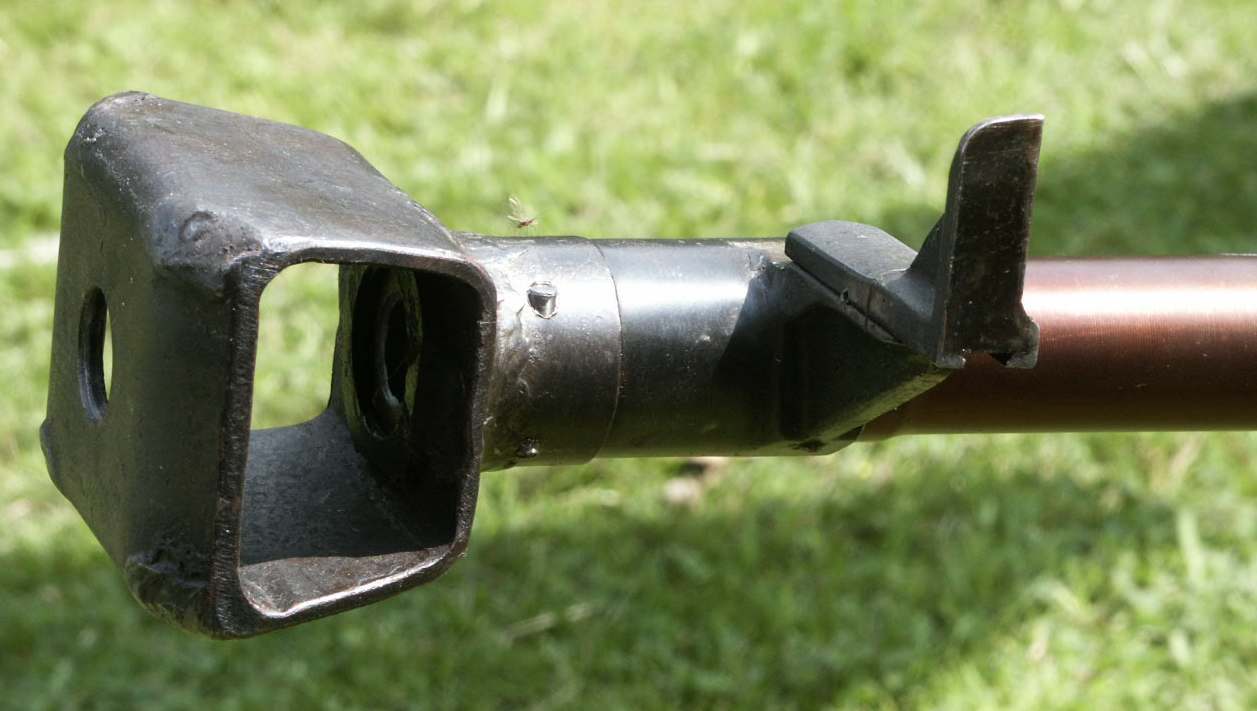
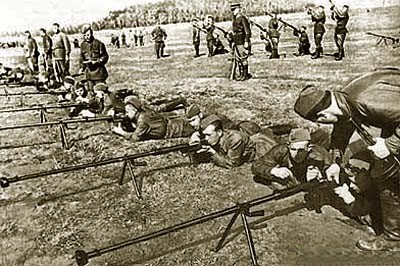 Left: PTRD Training
Left: PTRD Training
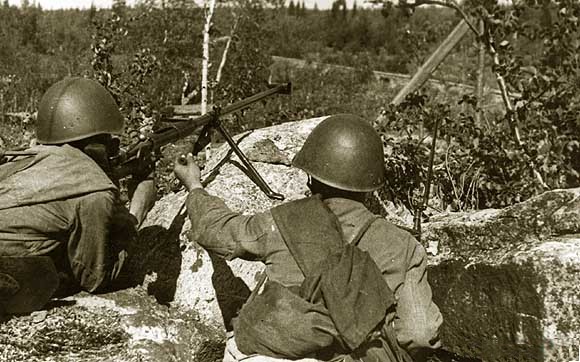
Above: The 186th Rifle Division at the
Karelian Front in 1942
 Unsure as to what this is demonstrating, AA?
Unsure as to what this is demonstrating, AA?

Above: Basic operating instructions, click for
larger image.
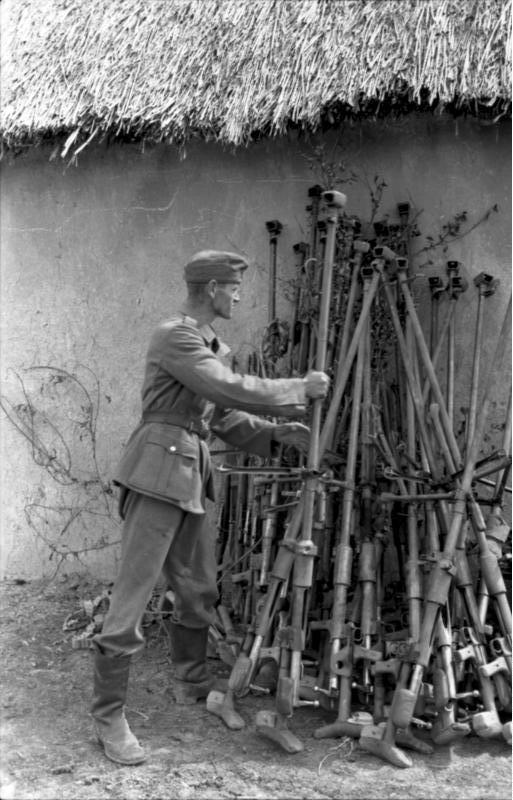
The Ammunition
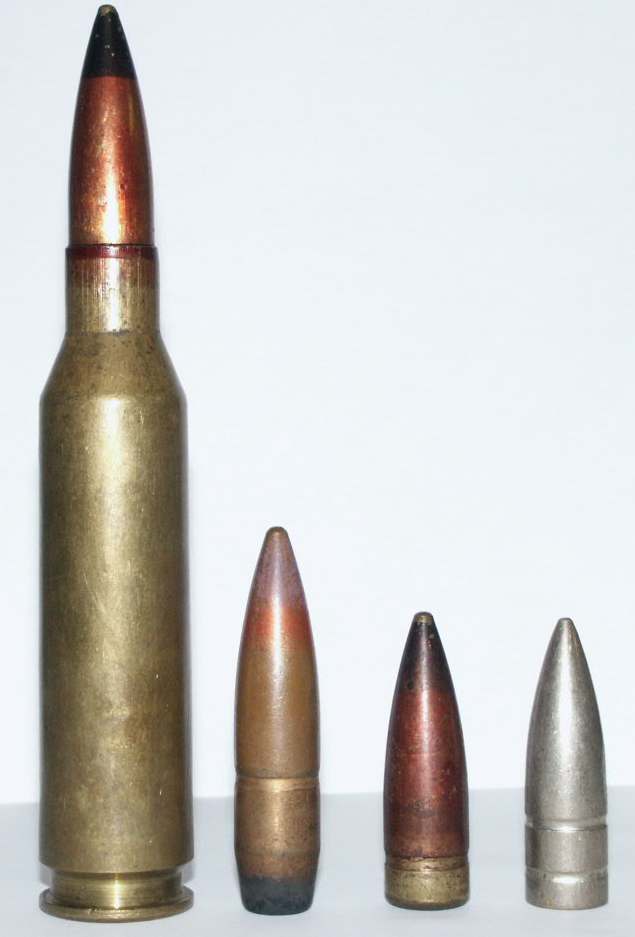
Left: From the left: BS round, B32 projectile, BS
projectile (Tungsten) and .55 Boys projectile. (Picture supplied by R. Ellis)
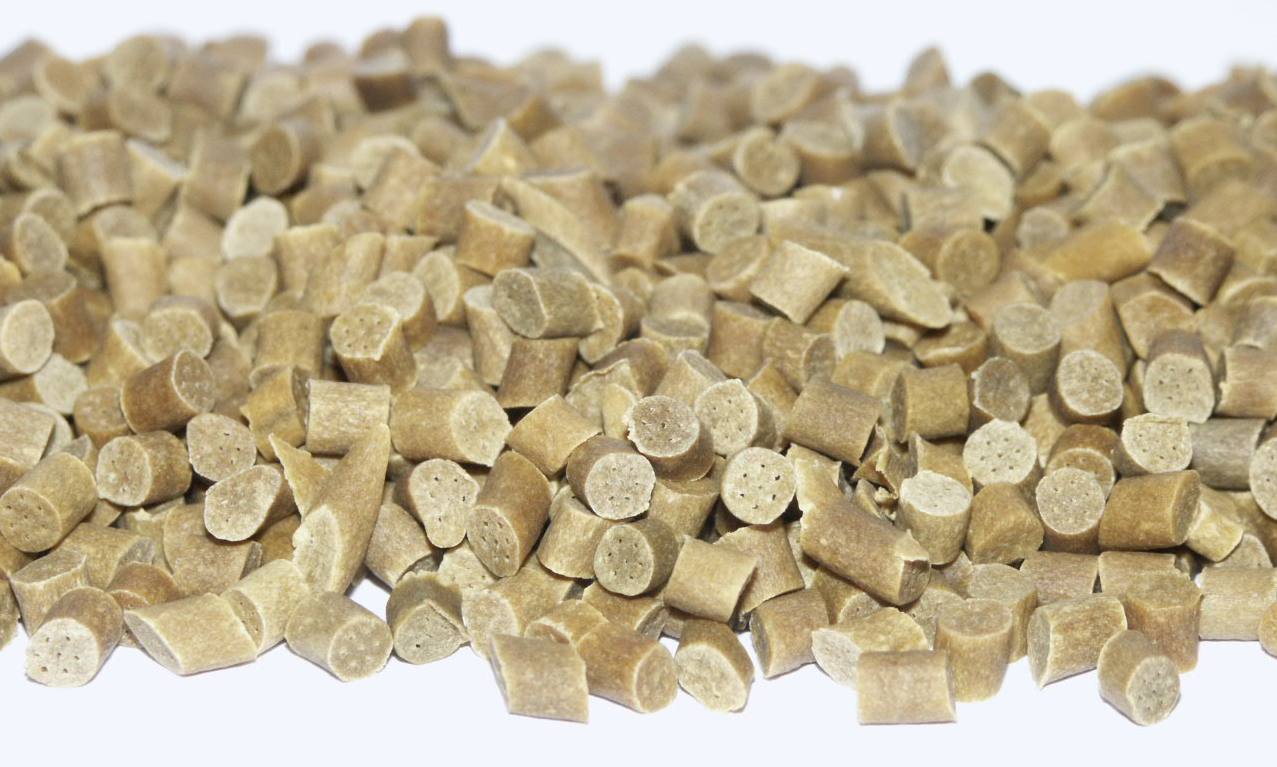 Left: Powder granules from 1944 dated BS 14.5mm
ammunition, each grain is approximately 5mm wide and contains 7 holes.
Left: Powder granules from 1944 dated BS 14.5mm
ammunition, each grain is approximately 5mm wide and contains 7 holes.
|

